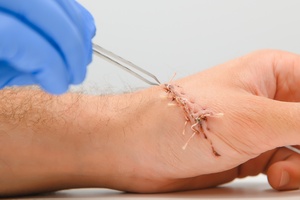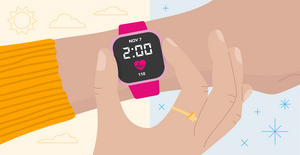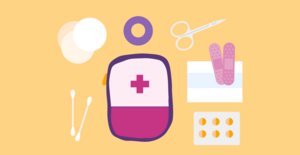Key points
- Folic acid deficiency can cause fatigue, mental fog, and other health issues. It's often overlooked but plays a crucial role in cell growth and DNA creation.
- Folic acid deficiency can be caused by poor diet, alcohol use, digestive disorders, certain medications, pregnancy, chronic illnesses, and aging.
- Symptoms of folic acid deficiency can be subtle and often confused with other conditions. They include fatigue, pale skin, mouth sores, mood swings, and difficulty concentrating.
- Treatment for folic acid deficiency usually involves a combination of supplements and dietary changes. It can be prevented by eating a balanced diet, taking multivitamins, limiting alcohol, and regular health monitoring.

If you’ve been feeling tired, a little foggy, or just not yourself lately, it might not just be stress or lack of sleep. Sometimes, your body is trying to tell you something more specific—like you're missing an important nutrient. One common but often overlooked issue is folic acid deficiency. Folic acid (also called folate in its natural form) is a type of B vitamin that plays a big role in your health. It helps your body make red blood cells, supports healthy cell growth, and is even involved in making DNA. That’s why it’s especially important during pregnancy and for anyone with ongoing health conditions, a poor diet, or chronic fatigue.
Read on to learn everything you need to know about folic acid deficiency: what causes it, what symptoms to watch for, and when to ask your doctor for a test.
What is folic acid deficiency?
Folic acid is the synthetic version of folate, a B vitamin (B9) found naturally in foods like leafy greens, beans, and citrus fruits. Your body uses it to build and repair DNA, make red blood cells, and support brain health. A folic acid deficiency happens when you don’t have enough folate in your system to meet your body’s needs. This can affect how your cells work, how much energy you have, and even your mental clarity.
Folate is mainly absorbed in the small intestine. If you’re not getting enough from your diet, or if something is blocking absorption, your folate levels can drop over time—sometimes without obvious signs until the deficiency becomes more serious.
What causes folic acid deficiency?
There are a few common reasons someone might develop a folic acid deficiency. These include:
- Poor diet: Not eating enough folate-rich foods like spinach, beans, citrus, and fortified grains
- Alcohol use: Heavy drinking can block folate absorption and increase how much folate your body flushes out
- Digestive disorders: Conditions like celiac disease, IBS, or Crohn’s can interfere with nutrient absorption
- Medications: Some prescription drugs—such as methotrexate, phenytoin, and sulfasalazine—can reduce folate levels
- Pregnancy: Your body needs more folate during pregnancy to support fetal development
- Chronic illnesses: Kidney dialysis or conditions that increase cell turnover (like cancer) can deplete folate
- Aging: Older adults may have lower absorption rates or dietary restrictions that limit folate intake
If one or more of these apply to you, it’s worth keeping folate on your radar.
Symptoms of folic acid deficiency
One tricky thing about folic acid deficiency is that it can sneak up on you. At first, symptoms might be subtle or confused with other conditions, especially iron deficiency. The most common low folic acid symptoms to watch for include:
- Fatigue or weakness
- Pale skin
- Mouth sores or a swollen, red tongue
- Irritability or mood swings
- Loss of appetite
- Difficulty concentrating or memory issues
- Shortness of breath
- Symptoms of folic acid deficiency anemia (like dizziness or a rapid heartbeat)
These symptoms often develop gradually, so you might just feel “off” for a while without knowing why. If that sounds familiar, you might be due for a check-up.
When should you get tested for folic acid deficiency?
Wondering if it’s time to check your folate levels? You’re not alone. Many people don’t realize they’re deficient until their doctor runs a blood test for another issue—like anemia or fatigue.
Here’s when you should consider asking for a folic acid blood test:
- You’ve been feeling constantly tired or weak for no clear reason
- You have a digestive condition like celiac disease or IBS
- You’re pregnant or planning to become pregnant
- You’ve been diagnosed with anemia, and iron supplements haven’t helped
- You’re taking medications known to affect nutrient absorption
- You follow a restricted diet (such as vegan or low-carb)
Folate levels are measured with a simple blood test—either serum folate (current levels in your blood) or red blood cell folate (longer-term folate status). Both are easy to order through your doctor or local clinic.
How is folic acid deficiency treated?
The good news? Folate deficiency is usually easy to fix once it’s caught.
Most people respond well to a combination of supplements and dietary changes. Here’s what treatment usually looks like:
- Folic acid supplements: These are taken daily, often in doses of 400–1000 micrograms, depending on the severity
- Dietary changes: Adding more folate-rich foods to your meals—like spinach, kale, black beans, oranges, and fortified cereals
Addressing underlying conditions: If a health issue or medication is causing the deficiency, your provider may adjust your treatment plan
Many people start to feel better within just a few weeks of treatment. Energy returns, brain fog lifts, and blood levels gradually return to normal.
How to prevent folic acid deficiency
Even if you’re not currently low in folate, prevention is always better than cure—especially if you're in a high-risk group.
Here are some simple ways to avoid folic acid deficiency:
- Eat a balanced diet: Include plenty of dark green vegetables, beans, nuts, and citrus fruits
- Take a multivitamin or prenatal vitamin, especially if you're pregnant, trying to conceive, or at higher risk for deficiency
- Limit alcohol consumption: Even moderate drinking can lower folate levels over time
- Monitor your health: If you have a digestive disorder or chronic illness, ask your doctor to check your nutrient levels regularly
With a few mindful choices, you can keep your folate levels in a healthy range.
Get a folic acid test at a clinic near you
If you’ve been feeling run-down, foggy, or just not like yourself, don’t wait. It’s easy to overlook nutrient deficiencies, but catching them early can make a big difference in how you feel—and how your body functions long-term. Need a folic acid test near you? Solv makes it easy to book an appointment with a clinic or lab in your area. Whether you need a same-day visit or a quick consult, we’ve got you covered.
FAQs
What is folic acid deficiency and why is it important?
Great question! Folate is the natural form of vitamin B9 found in foods like spinach, beans, and oranges. Folic acid is the synthetic form used in supplements and fortified foods. Your body absorbs folic acid more easily, which is why it’s used in prenatal vitamins and many over-the-counter supplements.
What are the common causes of folic acid deficiency?
Yes, it can. Severe or long-term folate deficiency has been linked to memory problems, mood changes, and even depression. In pregnant individuals, low folate levels increase the risk of neural tube defects in babies. That’s why it’s so important to catch and treat the issue early.
What are the symptoms of folic acid deficiency?
Not quite. Both are types of B-vitamin deficiencies, and both can cause anemia and fatigue—but they’re different vitamins. A folate deficiency can sometimes mask a B12 deficiency, so your doctor might test for both at the same time. Treatment is also different, so getting the correct diagnosis is important.
When should I consider getting tested for folic acid deficiency?
You should consider getting tested for folic acid deficiency if you've been feeling constantly tired or weak for no clear reason, have a digestive condition like celiac disease or IBS, are pregnant or planning to become pregnant, have been diagnosed with anemia and iron supplements haven't helped, are taking medications known to affect nutrient absorption, or follow a restricted diet such as vegan or low-carb.
How can folic acid deficiency be treated and prevented?
Folic acid deficiency can usually be treated with a combination of folic acid supplements and dietary changes, such as adding more folate-rich foods to your meals. If a health issue or medication is causing the deficiency, your provider may adjust your treatment plan. To prevent folic acid deficiency, eat a balanced diet rich in folate, take a multivitamin or prenatal vitamin if you're at higher risk for deficiency, limit alcohol consumption, and ask your doctor to check your nutrient levels regularly if you have a digestive disorder or chronic illness.









